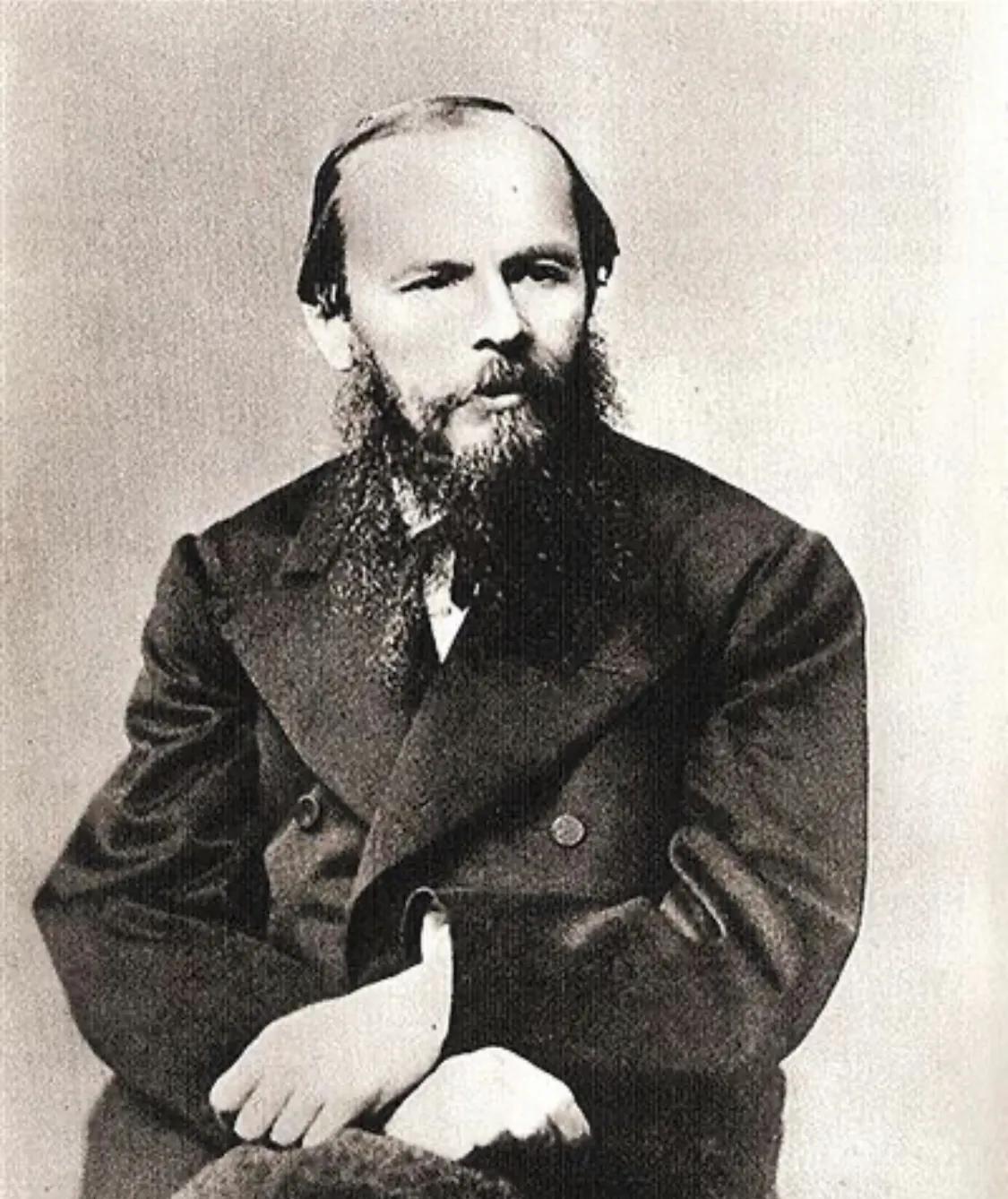In 1857, Dostoevsky, who had been exiled to Siberia, married Maria, the widow of a civil servant, and restored his deprived aristocratic status.
In 1859, after being allowed to retire as a second lieutenant, tow left Siberia with his wife Maria and stepson Basha, and lived in Tver, not too far from Moscow, for four months, and moved to St. Petersburg at the end of the year by the Tsar's "grace".

But with the loss of his regained freedom (although the Ministry of Internal Affairs still secretly monitored him), Dostoevsky was put under the new shackles of epilepsy, gambling addiction and debt until the end of his life.
Epilepsy that has been lurking on him since childhood has frequently occurred, and it has become more and more violent. Gambling became an addiction he couldn't quit. Due to his high debts, he was always under great pressure and had to write desperately and hand over his manuscripts to the journal for serialization. A novel is often published in three chapters, the fourth chapter is scheduled, the fifth chapter is in the mail, and the sixth chapter has not been written at all, at most there is only one synopsis in the author's mind. It was under these conditions that he wrote In just a few years, He wrote Notes on the Dead House, The Man Who Was Hurt and Insulted, and several short and medium stories.
Toth's wife Maria died of tuberculosis in 1864, marking the end of the second phase of Toth's life.
At this time, he was middle-aged, in an embarrassing situation, and his prospects were bleak. In addition to his deteriorating health and ill-fated fate, he is also in danger of becoming a prisoner for the second time, this time in a debt lawsuit.
In the summer of 1865, the black-hearted publisher Stellowski took advantage of the danger of man to enter into a very demanding contract with Dostoevsky, purchasing the copyright in Tortole's complete works for only three thousand rubles, and stipulating that the desperate writer must hand over a new work by November 1, 1866, or he would be subject to a high liquidated damages; if he could not deliver the manuscript by December 1, all of Torth's works would be permanently transferred to the publisher.
However, in 1866, Dostoevsky, who was dragging his sick body into writing Crime and Punishment, had time to write a new work that stipulated that it must reach a number of prints. At the critical moment when only a few months remained, an eighteen-year-old girl, Anna Snitkina, appeared. She was recommended to start working as a stenographer for Toshi on October 4. On October 29, Toshi completed the novel "The Gambler" by oral description.
On November 1, he sent the manuscript to a publisher, and because he did not meet Stelovsky, he handed it to the local police commissioner for signature. On November 3, Toshi visited Anna and her mother for the first time. On November 8, he proposed to Anna. The wedding took place in February of the following year.
During the last fourteen years of Toshi's life, he composed four of his most important novels: Crime and Punishment, The Idiot, Ghost (i.e., The Devil), and Brother Karamazov.
Anna is not outstanding, has no extraordinary talent or considerable wealth, but is infinitely loyal to her husband, believes in his genius, understands his creative enthusiasm, and helps him overcome all kinds of difficulties with affection and care - financial constraints, frequent seizures of epilepsy, inner pain, and a heavy sense of guilt and inferiority. Anna bore him children and gave him a real home. It can be said that without Anna, there would be no Dostoevsky as we know it today.
Toshi was not a good husband. He was a gambler, was consistently disloyal to his wife, and had difficulty getting along with people. Turgenev said he was "one of the most evil Christians I've ever met in my life."
After Tolstoy's death, a friend of Leo Tolstoy wrote: "I think Dostoevsky is neither kind nor happy. He has an unhealthy heart, is jealous and depraved, and has been making sex and throwing tantrums all his life... In Switzerland, I have witnessed his attitude towards servants so odious that the humiliated servants are indignant and cry out, 'I am also a man'. ”
Anna, however, denied this cut-off. She said in her memoirs that the fourteen years they had lived together convinced her that Dostoevsky was the purest man in the world.
More than a hundred years have passed, and today, apart from Dostoevsky's prodigious genius and his rich legacy to all mankind, nothing else is meaningful.
(Excerpt from "Dostoevsky's Biography", infringement reminder is deleted)